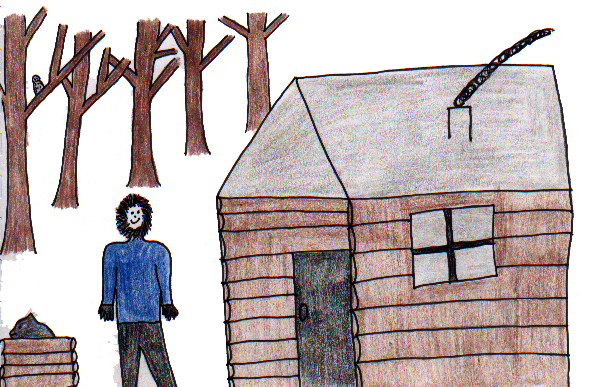 This collection of student work is from Frank Keim's classes. He wants to share these works for others to use as an example of culturally-based curriculum and documentation. These documents have been OCR-scanned and are available for educational use only.
This collection of student work is from Frank Keim's classes. He wants to share these works for others to use as an example of culturally-based curriculum and documentation. These documents have been OCR-scanned and are available for educational use only.Special | A | B | C | D | E | F | G | H | I | J | K | L | M | N | O
P | Q | R | S | T | U | V | W | X | Y | Z | ALL
Taking the Wrong Trail:Taking the Wrong Trail
Once when he was a young man and before he knew the country between the Kuskokwim and the Yukon Alexander Isaac's uncle gave him some good advice. Before leaving on a trip by dogsled over to Akiachak he told him to let his leader take him in the direction he wanted to go whenever he was on unfamiliar trails. That way he wouldn't get lost. When Alexander got to Akiachak he stayed there for a day, then a day later he started back home to the Johnson River. But along the way he forgot his uncle's advice and somehow made his dogs take a wrong turn and followed a trapping trail made by some Akiachak people. After awhile he noticed the country looked different and he realized he wasn't on the the right trail. Just before dark he came to a place where there was a blackfish trap and he decided to stop to camp for the night there just in case the weather got worse. He used some of the blackfish from the trap for himself and his dogs, then he turned in for the night. The next morning while going back along the trail he'd followed the day before he met two guys coming his way probably to check their blackfish trap. Since he had been taught to always be honest, he told them he had used some of the fish for himself and his dogs. The men saw he was lost, so they told him to keep following their trail to a cabin where there was an old man living and he would give him instructions as to where to go from there to get home. He did this and then followed the old man's directions back to familiar country from where he could find his way home more easily. From that time on he paid more attention to what older people said about taking notice of trail conditions, like the direction the grass pointed after the last storm in winter, and about running dogs on unfamiliar trails. Alexander Isaac  | |
|



